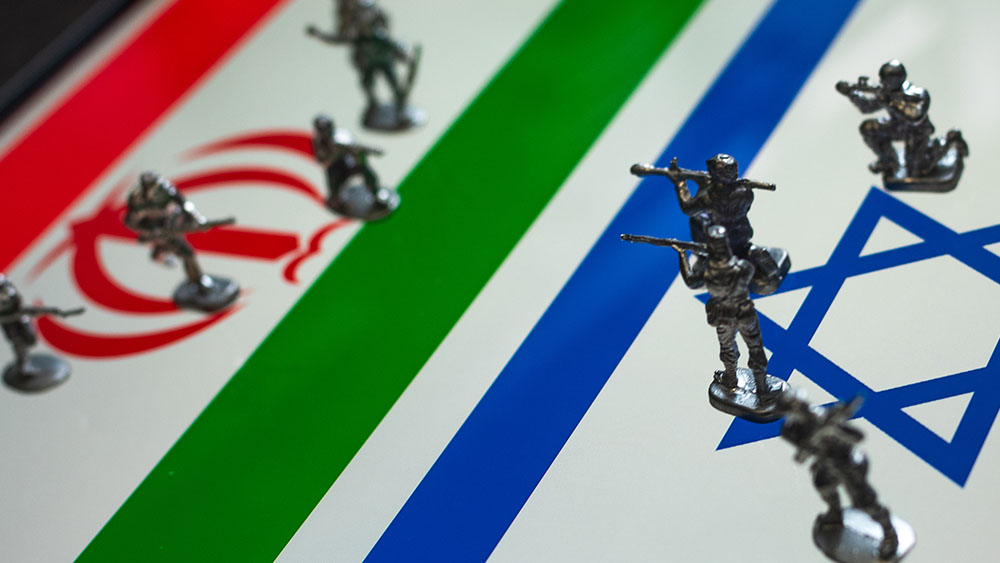Israeli press fears Iran is prepared for a LONG WAR as Tel Aviv takes damage, economy falters
As Israel celebrates U.S. airstrikes on Iranian nuclear facilities, fears are mounting that Tehran is preparing for a protracted conflict, launching retaliatory missile attacks that have turned Tel Aviv into a ghost town. With unprecedented destruction and a looming labor crisis, Israel faces a war of attrition it may not be prepared to sustain.
Despite Prime Minister Benjamin Netanyahu’s insistence that Israel “will not be dragged into a war of attrition,” military analysts warn that Iran retains significant missile capabilities. Journalist Yossi Melman noted on X: “Fifteen missiles were launched. This proves that Iran’s launch capability has not really weakened.”
Former Israeli Prime Minister Ehud Olmert dismissed the notion that military strikes alone could force Iran’s surrender, calling it “arrogant and unrealistic.” He warned that Tehran still possesses a “formidable arsenal” capable of sustaining long-term strikes.
Key points:
- Israeli officials warn of a prolonged war of attrition with Iran.
- Tel Aviv residents flee amid fears of continued missile strikes.
- Damage from Iranian attacks exceed $576 million in just six days.
- Reconstruction efforts face severe labor shortages.
Tel Aviv residents flee amid missile threats
Tel Aviv, Israel’s commercial hub, has seen mass evacuations as residents fear being primary targets. “There is a feeling among Tel Avivians that the Iranians are aiming mainly at Tel Aviv,” one resident told Channel 12 News. Many buildings lack shelters, forcing families to seek refuge elsewhere.
Some remain, relying on municipal shelters. “We have an underground parking lot… we don’t see a reason to leave,” another resident said. Yet, the psychological toll is undeniable—missile sirens and destruction have reshaped daily life.
The financial impact of Iran’s missile strikes is staggering. Initial estimates place damages at 2 billion shekels ($576 million)—and rising. The Property Tax Authority is overwhelmed, with 33,000 lawsuits filed and 11,000 people displaced in just one week.
Reconstruction efforts face another hurdle: a shortage of 15,000 foreign workers needed to rebuild. “The dimensions of the destruction… are already too great to contain,” a Tax Authority source told The Marker. Entire buildings are being condemned, compounding Israel’s housing crisis.
Iran may target Israeli nuclear facilities now
A senior officer from Iran’s Islamic Revolutionary Guard Corps (IRGC) has issued a stark warning: Tehran possesses the capability to target Israeli nuclear facilities if its own are attacked. The threat comes amid heightened tensions following an Israeli airstrike on Iran’s embassy in Damascus, Syria, on April 1, which killed seven IRGC officers, including a high-ranking Quds Force general.
The escalation underscores the volatile nature of Middle East geopolitics, where proxy conflicts and direct military confrontations have become increasingly common. Iran’s warning signals a potential shift from covert operations to overt retaliation, raising fears of a broader regional war.
The Israeli-Iranian shadow war has simmered for decades, with both nations engaging in espionage, cyberattacks, and targeted assassinations. Israel has long viewed Iran’s nuclear program as an existential threat, while Tehran sees Israel’s military dominance in the region as an extension of Western imperialism.
In 2020, Iran’s top nuclear scientist, Mohsen Fakhrizadeh, was assassinated in an attack widely attributed to Israel. The latest strike on Iran’s diplomatic compound in Damascus marks a dangerous escalation, as embassies are considered sovereign territory under international law.
Iran boasts an extensive missile arsenal, including ballistic missiles capable of reaching Israel. While Israel’s Iron Dome defense system has intercepted many projectiles in past conflicts, experts warn that a saturation attack—launching dozens or hundreds of missiles simultaneously—could overwhelm defenses.
“Iran has spent years developing its missile technology precisely for this scenario,” said Yossi Melman, an Israeli security analyst. “They may not have nuclear weapons yet, but their conventional strike capabilities are formidable.”
Sources include:
MiddleEastEye.net
RT.com
Enoch, Brighteon.ai
Read full article here


